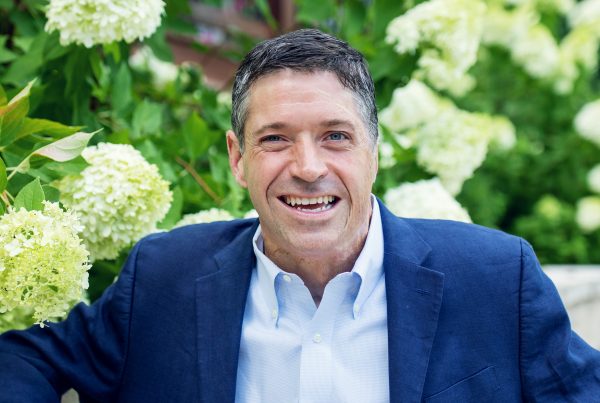Dark money, murky messages
Over the weekend, the last flurry of campaign mailers hit mailboxes in Boca Raton and Delray Beach. While some mailers—a staple of local elections—are straightforward, others are designed to mislead and/or deceive voters. Big surprise, right?
Consider the mailer attacking Boca Raton City Council Seat C candidate Frank Chapman. It correctly states that Chapman’s first application to the Ohio Bar was denied because of, as the mailer put it, “immoral, unethical & illegal behavior.” Close enough. While Chapman was working at his father’s carpet and upholstery business, the Ohio Attorney General’s Office took action against him for “deceptive and unconscionable sales practices.” Chapman agreed to testify against his father. He was fined and ordered to pay restitution.
But who sent the mailer? It comes from Keeping Citizens First, Inc. The group’s West Palm Beach address matches that of the political consulting firm working for Jamie Sauer, one of Chapman’s opponents.
Another mailer targets Jeremy Rodgers, the third candidate in Seat C. Two firefighters are pictured in the mailer, which attacks Rodgers for his comment that Boca Raton might have to consider switching firefighters and police officers from the traditional defined-benefit pension system—with a guaranteed payout—to a defined-contribution plan like the 401(c) 3 pensions to which many private companies have switched. Firefighters and police officers prefer the guaranteed payouts.
The source of the mailer is Floridians for Integrity in Government, which is based in Tampa. This is the same group that last year sent mailers attacking Armand Grossman, then a candidate for Seat C. The money for the mailers came from Chapman’s wife. On Feb. 27, the firefighters union sent Floridians for Integrity in Government a check for $5,000.
So the firefighter mailer amounts to Chapman attacking Rodgers without using Chapman’s name. Perhaps Chapman didn’t attach his name to this mailer because he ran unsuccessfully for the council in 2012 against the union-backed candidate, Anthony Majhess, and didn’t want to appear even more inconsistent. Chapman already is running against the Boca Raton political establishment whose support he welcomed three years ago.
Floridians for Integrity in Government and Keeping Citizens First are “electioneering communications organizations,” known as ECOs. They are different from political action committees in that under Florida law they cannot “expressly advocate” that one candidate win or lose. Obviously, though, the intent is clear‑even if the identity behind the mailer isn’t.
ECOs also help to hide the source of money spent to influence elections. Candidates must report direct contributions. Boca Raton and Delray Beach post those periodic reports on the cities’ websites. Money to ECOs, however, is much harder to trace, and there are no limits on how much donors can give.
In Delray Beach, the same Floridians for Integrity in Government has sent mailers on behalf of Bruce Bastian, one of four candidates running for Seat 3. One mailer attacks the other candidates—Mitch Katz, Christina Morrison and Josh Smith—as having “failed” to address critical issues facing the city. Neither Katz nor Smith ever has served on the city commission, and Morrison only briefly served as an appointed commissioner in 2013.
One of the big issues facing the next commission is approval of a development agreement with Atlantic Crossing, the controversial mixed-use project on Atlantic Avenue just west of Veterans Park. If you check Bastian’s campaign treasury reports through Feb. 20, you will find no contributions directly from Atlantic Crossing.
But if you check with the Florida Division of Elections for contributions to Floridians for Integrity in Government, you will find a pair of $2,500 contributions directly from Atlantic Crossing. Both came on Feb. 24. One is from CDS Group Holdings, which owns the Atlantic Crossing site and whose principal is Carl DeSantis. The other is listed as PJAM, but its address matches that for the Columbus, Ohio, headquarters of The Edwards Cos., which is building Atlantic Crossing’s residential component.
So there’s a $5,000 contribution—serious money in a local election—related to a major issue that voters wouldn’t know about, given the nature of an ECO.
Another mystery mailer in Delray falsely links Mayor Cary Glickstein to All Aboard Florida, the passenger rail service that has created much controversy in parts of South Florida and especially in the Treasure Coast, by picturing him in a train conductor’s uniform. In fact, city officials have no power over All Aboard Florida. The parent company owns the tracks, and federal agencies have responsibility for approving All Aboard Florida’s plans.
The mailer comes from Citizens for a Better Delray Beach. It is registered with the city as an electioneering communications organization, and reports a single donation of $10,000. The donation came on Feb. 19 from American Dialogue, yet another ECO, this one based in Boca.
The address for Citizens for a Better Delray Beach is a house in the northwest section of the city. The address for American Dialogue is a condo west of Boca Raton. The chairperson/treasurer of American Dialogue is listed as Evan Carson, but the property appraiser’s website does not list Evan Carson as the owner of the condo.
The treasurer’s report of Citizens for a Better Delray Beach is signed by Rick Burgess. In 2014, Rick Burgess ran as the third candidate when Chris Davey challenged incumbent commissioner Al Jacquet. Davey’s supporters saw Burgess as a spoiler designed to help Jacquet. Burgess got 294 votes. Jacquet won by 265 votes.
Since Tom Carney is the only candidate challenging Glickstein, the mailer obviously is on his behalf. Glickstein and others consider Carney to be allied with the Mary McCarty faction in Delray Beach politics. Carney’s name, of course, does not appear on the mailer.
Compounding the difficulty of tracing this “dark money” is that people can use the same ECO in multiple campaigns at different levels. Floridians for Integrity in Government played a big role last year in a local state Senate race. In contrast, the state nearly revoked American Dialogue’s status in 2014 for lack of activity.
The point of these ECOS, of course, is to hide the money from the public. Money in politics is enough of a problem. Now it’s the money behind the money.
Predictions
So who’s going to win in Boca and Delray? As with national elections, it will depend on turnout.
Frank Chapman is self-financing his campaign, and has sent out the most mailers, casting himself as the anti-overdevelopment candidate. It’s an easy and potentially winning issue, potentially more so in the eastern neighborhoods. Rodgers has been in the race the longest but has the least amount of money. He does have the endorsement of the Greater Boca Raton Chamber of Commerce, but the chamber is much less active in city elections than it was a decade ago.
Sauer got into the race last. Her hope lies with her supporters—meaning most current and recent Boca Raton elected officials. A Sauer mailer included a testimonial from former Mayor and current County Commissioner Steven Abrams, comparing Sauer to former Mayor Susan Whelchel and current Mayor Susan Haynie. A recorded message also went out Monday to Boca voters. Abrams always gets much support from the northwest neighborhoods that have the highest turnout in the city. Sauer lives in the east, but her fate likely lies with the west.
In Delray, the odds probably favor Glickstein for a second term. He has loaned himself $100,000, Carney got into the race late, and things are better after Glickstein’s two years in office.
For the commission seat, it’s hard to imagine any of the four candidates getting an outright majority. Each has potential appeal in certain segments of the community. Delray Beach has no runoff unless two candidates tie, so however small the percentage the winner will get all the power of a vote.
Bondi challenges deportation delay
As I’ve written, reform of the nation’s immigration system would help Florida more than almost any other state. Even minor reform that granted legal status to some of South Florida’s undocumented residents would help law enforcement—without fear of deportation, people are more likely to report crimes—and the economy—employers couldn’t drive down wages by exploiting the silent.
Yet Florida Attorney General Pam Bondi is among those challenging President Obama’s 2014 executive action that would delay deportation for the parents of some illegal immigrants whose children were born here. According to the Pew Research Center, Obama’s action could apply to roughly 300,000 Floridians.
Pew calculates that of the 5 million who could be eligible, 2.3 million live in states that are challenging the president’s action. A federal judge in Texas ruled against the president. The administration is appealing.
Time change
If you woke up in darkness Monday and emerged from Dunkin Donuts before the sun really was up, you might have wondered, as many of us do twice a year, Why do we change the time? Does it do any good?
Not really. According to an article distributed by Quartz Media, the federal government in 2008 found no overall energy savings from Daylight Saving Time, even though proponents say that longer days mean more natural light for office buildings.
For nearly a century, the United States has been messing with the natural cycle of day and night. We are one of just 82 nations that still do so. And while we once alternated between Daylight Time and Standard Time every six months, Daylight Time now starts in early March, as opposed to what for years was late April.
March is one of the most glorious months in South Florida. But it would be just as glorious if we could ease into it, not be jolted into it.
••••••••
You can email Randy Schultz at randy@bocamag.com
For more City Watch blogs, click here.About the Author
Randy Schultz was born in Hartford, Conn., and graduated from the University of Tennessee in 1974. He has lived in South Florida since then, and in Boca Raton since 1985. Schultz spent nearly 40 years in daily journalism at the Miami Herald and Palm Beach Post, most recently as editorial page editor at the Post. His wife, Shelley, is director of The Learning Network at Pine Crest School. His son, an attorney, and daughter-in-law and three grandchildren also live in Boca Raton. His daughter is a veterinarian who lives in Baltimore.








